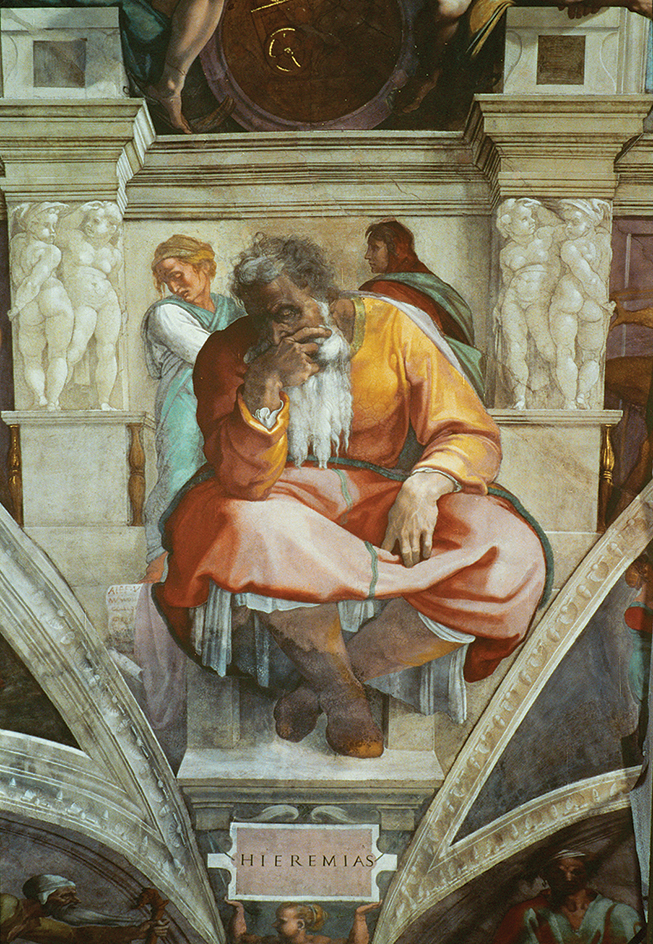Jeremiah, << jehr uh MY uh, >> Book of, is a book of the Hebrew Bible, or Old Testament, named for an Israelite prophet. Jeremiah began prophesying about 627 B.C. He continued as a prophetic voice during the fall of the kingdom of Judah to the Babylonians and the destruction of Jerusalem and the Temple in 587 or 586 B.C. His prophecies also continued into the exile that followed. See Jews (Foreign domination) .

Jeremiah perceived, to his great sorrow and pain, that the sin of the people of Judah, like that of all nations, would bring about punishment. When he proclaimed this message and called for repentance, he was arrested and nearly lynched as a traitor. He survived the destruction of Jerusalem, and his prophecies became ones of comfort, restoration, and hope for a new moral order.
The Book of Jeremiah contains biographical narratives as well as Jeremiah’s poetic prophecies. Much of what is known about Biblical prophets and prophecy comes from the book. Jeremiah consists of four main sections, collected during the prophet’s life and in the century following. The first 25 chapters mostly record Jeremiah’s haunting visions, oracles of judgment, and laments. Chapters 26 to 45 consist mostly of speeches by Jeremiah and stories about him. His prophecies against foreign nations make up the next six chapters. The last chapter is a historical appendix describing the fall of Jerusalem.
